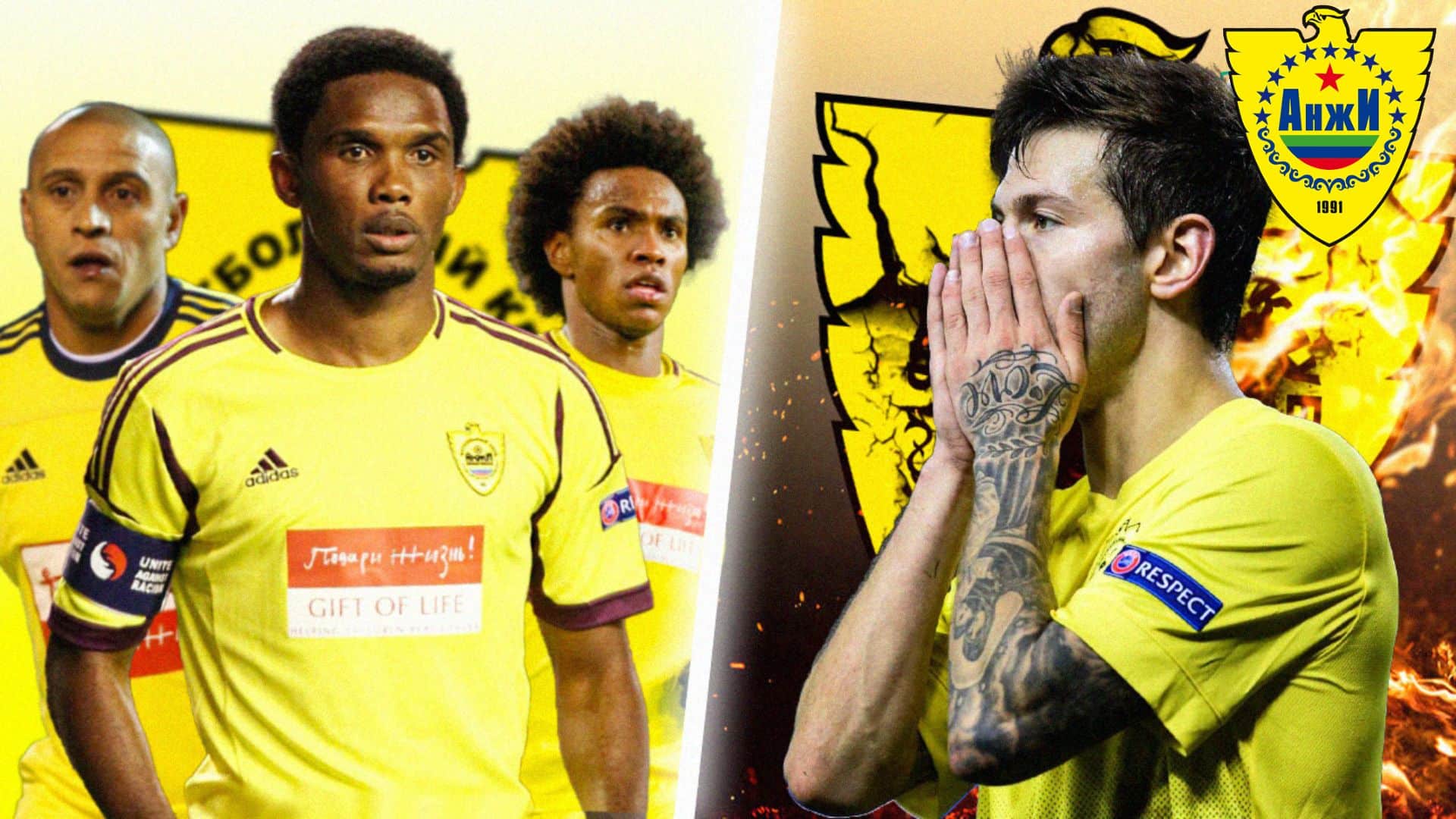
Once football’s most extravagant fantasy, now just a fading echo on the edge of Russia.
By our correspondent somewhere between memory and myth
It began, as many strange football stories do, with a rumour. In early 2011, word spread that Roberto Carlos — the Roberto Carlos — had signed for a club called Anzhi Makhachkala. Then came Samuel Eto’o. Then Guus Hiddink. The disbelief wasn’t just about the names. It was the place. A war-scarred region in the Russian Caucasus. A team barely known even within its own country. And suddenly, it was assembling a Champions League fantasy XI.
A billionaire’s dream on the edge of nowhere
Anzhi was founded in 1991, a product of the Soviet collapse and the chaos that followed. For most of its life, it was a lower-league afterthought. That changed in January 2011 when Suleyman Kerimov — a Daghestani oligarch with Kremlin ties and oil billions — bought the club.
He promised to build a footballing superpower, fast. Whether for political favour, regional pride, or sheer whim, Kerimov poured cash into the club like petrol onto fire. The project was surreal from the start. Kerimov didn’t just want to win — he wanted to dominate.
The team that never lived there
The signings came thick and fast. Eto’o was reportedly earning €20 million a year, net. Willian. Lassana Diarra. Yuri Zhirkov. Mbark Boussoufa. There was even talk of Messi one day. But this was no fairy tale. There was a reason few had ventured to Daghestan before.
Due to persistent security threats — kidnappings, shootings, instability — the players didn’t actually live in Makhachkala. They were based in Moscow, flying 2,000 km by private jet for home games. The club trained in luxury, but its fanbase lived 30 hours away by train. It was, in essence, a football club without a home.
Still, somehow, it worked — for a while. Anzhi finished third in the Russian Premier League. In 2013, they reached the Europa League quarter-finals, only to lose to Chelsea in the final minute. They were a curiosity, a spectacle, a Frankenstein’s football club that dared to dream.
And then the music stopped
In August 2013, the collapse came faster than the rise. Kerimov — perhaps under pressure, perhaps out of interest — pulled the plug. The club’s budget was slashed by 90%. Within weeks, Eto’o and the rest were sold off. The experiment was over.
What followed was a brutal descent. Relegation in 2014. A brief return. Then another drop. Then expulsion from the professional leagues in 2022 over unpaid debts. From signing Ballon d’Or contenders to fielding part-time local players in dusty regional leagues — in just under a decade.
Anzhi had burned so brightly, and so briefly, that its death felt like a dream fading. No proper goodbye. Just silence.
A lesson in football’s fragile fiction
Anzhi was never built to last. It was the ultimate expression of football-as-vanity: a billionaire’s toy dropped into a conflict zone, disconnected from its people, its city, its purpose.
Money, we are often told, can buy anything in football. But it couldn’t buy Anzhi an identity. It couldn’t buy time. It couldn’t buy love.
Today, in the streets of Makhachkala, you might still find a tattered Eto’o mural. A worn-out replica shirt. A whisper of what might have been. But for most of the football world, Anzhi Makhachkala has returned to what it once was: a footnote, a fable, a forgotten flame.
And maybe, just maybe, a cautionary tale whispered in the corridors of Europe’s new-money clubs, wondering if they too might vanish the moment the music stops.
